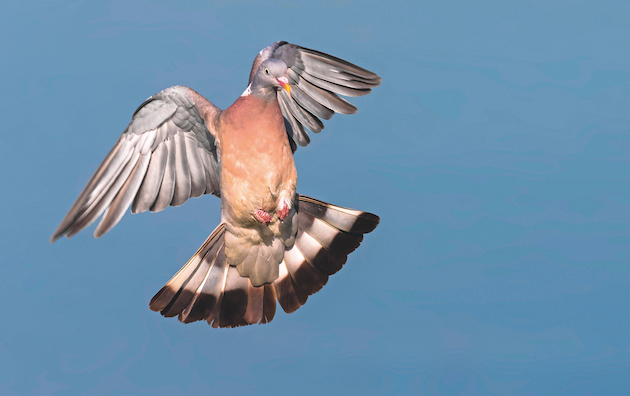Set up to ‘fight for wildlife’, Wild Justice has wasted Government resources in its relentless legal attacks on shooting and left fragile species open to predation – where’s the justice in that, asks Tim Bonner
Three years ago, the BBC presenter Chris Packham appeared on BBC Radio 4’s Farming Today to announce the creation of a new organisation, Wild Justice, set up to ‘fight for wildlife’ through the legal system and to change the law.
The BBC giving its presenter a platform to launch a political campaign was, at the very least, a questionable act for a licence fee-funded national broadcaster, but the BBC seems to have decided some time ago that the usual rules do not apply in such cases. In an advanced example of corporate obfuscation worthy of the BBC satire W1A, the BBC Trust concluded in 2016 that Packham was a ‘recurrent’ presenter, not a regular one, and that the BBC’s editorial guidance did not therefore apply to him despite the fact that he had regularly presented programmes for the BBC for more than a decade.
The BBC Farming Today interview was particularly galling as Packham was given his usual opportunity to spin his line about acting for ‘threatened species which can’t take legal cases in their own name’ without a single question about Wild Justice’s real motivation or any alternative voice challenging its proposed campaign of legal activism.
Many of us were deeply cynical about the motivation of Packham and his fellow Wild Justice directors, Mark Avery and Ruth Tingay, who had all been involved almost exclusively in campaigns against shooting and wildlife management. Yet we were given no platform to express our concerns, and when we challenged the decision not to provide any alternative voice, we were fobbed off with the frankly pathetic excuse that Wild Justice was ‘not controversial’.
Over the past three years, headlines have appeared regularly in newspapers and online, reporting the latest crowdfunded judicial review as Wild Justice and its legal representatives pick at arcane points of law relating to licensing and protected areas. The egos of its directors may be fed by glowing write-ups in The Guardian and a sycophantic tribe of social media followers, but when these claims actually get to court something very different is happening. It is losing, consistently and badly.
The closest it has got to a ‘win’ was in its first legal foray, a case against general licences in England, which caused Natural England to make a foolish and premature decision to withdraw those licences. They were, however, reinstated after intervention by rural organisations and a national outcry from farmers and land managers, and they have subsequently been renewed in a very similar form to the original. Wild Justice’s claim therefore resulted in nothing other than leaving livestock and vulnerable species open to predation during the breeding season. Strangely, it is not that keen on promoting this achievement.
Further claims in relation to general licences against Natural Resources Wales failed on all counts. A claim relating to the release of pheasants and partridges in and around protected areas forced Defra to introduce a temporary licensing scheme, but the judge was clear that “it cannot be said that [Wild Justice] has been wholly or even substantially successful in relation to its claim as originally pleaded… I am inclined to the view that it would not have been successful.” A challenge to the Government’s rules on heather burning in England failed completely, and a particularly petty challenge to the status of gamebirds and the use of general licences to protect them, which is currently being signalled, looks equally doomed.
Nor has Wild Justice been any more successful when it has, briefly, moved on from its obsession with shooting. Its attempt to persuade the courts that the badger cull is inhumane fell at the first hurdle, with the judge refusing to grant permission for a judicial review and concluding that “the Chief Scientist had rationally concluded that there was a high level of compliance” with best practice.
Wild Justice’s failures do not occur without help. The Countryside Alliance, BASC, the National Gamekeepers’ Organisation and other members of the Aim to Sustain partnership have intervened consistently as interested parties in judicial reviews, firming up the position of governments and supplying crucial information to help defend cases.
As a result of this work, Wild Justice has achieved almost nothing of substance in three years other than to waste significant amounts of Government resources, while happily spending the money it has crowdfunded from gullible supporters. Worse than the waste and pointlessness, however, is the lie. Wild Justice was founded on a blatant dishonesty that its purpose was to improve wild animal welfare and nature conservation.
When Packham was granted that interview on BBC Farming Today, he made all sorts of grandiose claims about the issues it intended to address. In reality, however, Wild Justice has followed the classic animal rights agenda. Game shooting and badgers are its abiding obsessions, and its driver is its hatred of the people who are involved. Its weapon is the pointless pursuit of arcane legal points that soak up Government time and resources to no positive end, but which inflate the egos of its participants and give an outlet for their dislike of large parts of the rural community.
Tim Bonner is chief executive officer of the Countryside Alliance





